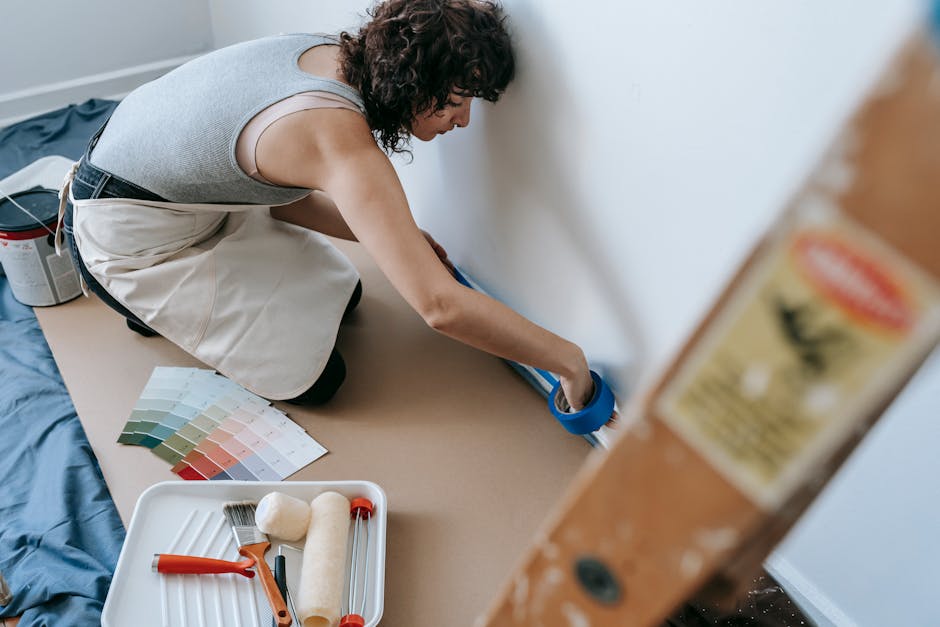A Beginner’s Guide to Painting a Room Like a Pro
Painting a room can be a daunting task, especially for beginners. However, with the right guidance and techniques, you can transform any space with a fresh coat of paint and achieve professional-looking results. Whether you’re looking to brighten a room, add a splash of color, or simply refresh your walls, this guide will walk you through the process step-by-step. Let’s dive into the world of painting and turn your home into a masterpiece!
Why Paint Your Room?
Painting your room can do more than just change the color of your walls. According to a study by Zillow, homes with a fresh coat of paint in neutral tones sold for $3,500 more than expected. Not only can painting increase the value of your home, but it also allows you to express your personal style and create a space that feels uniquely yours.
Essential Tools and Materials
Before you begin your painting project, it’s crucial to gather all the necessary tools and materials. Here’s a checklist to ensure you’re well-prepared:
- Paint: Choose high-quality paint based on the finish and color you desire.
- Primer: A good primer helps the paint adhere better and ensures a uniform finish.
- Brushes and Rollers: Invest in a set of quality brushes and rollers for smooth application.
- Painter’s Tape: Use tape to protect edges and create clean lines.
- Drop Cloths: Protect your floors and furniture from paint splatters.
- Sandpaper: Smooth out any rough surfaces before painting.
- Paint Tray: Use a tray to hold paint and prevent spills.
- Ladder: Reach high areas safely with a sturdy ladder.
Preparing Your Room
Preparation is key to achieving a professional finish. Follow these steps to prep your room for painting:
Clear the Area
Start by removing all furniture, decorations, and fixtures from the room. If moving large items is not feasible, cover them with drop cloths to protect them from paint splatters.
Clean the Walls
Dust and grime can prevent paint from adhering properly. Use a damp sponge or cloth to clean the walls, paying special attention to corners and baseboards.
Repair and Sand
Inspect the walls for any cracks or holes. Use a spackling compound to fill these imperfections, then sand the surface smooth. This step ensures an even finish and prevents the paint from highlighting flaws.
Apply Painter’s Tape
Use painter’s tape to mask off areas you don’t want to paint, such as trim, moldings, and windows. Press the tape firmly to prevent paint from seeping underneath.
Prime the Walls
Applying a primer is essential, especially if you’re painting over a dark color or stained surfaces. Primer helps the paint adhere better and provides a uniform base for your color of choice.
Painting Techniques for a Professional Finish
With your room prepped, it’s time to start painting. Here are some expert techniques to help you achieve a flawless finish:
Cutting In
Begin by “cutting in” around the edges of the room with a brush. This involves painting the corners, edges, and areas around fixtures first, creating a border for your roller to work within.
Rolling the Walls
Once the edges are complete, use a roller to fill in the larger areas. Apply paint in a ‘W’ pattern to ensure even coverage, and work in small sections to keep the edges wet and blend seamlessly.
Layering and Drying
Allow the first coat to dry completely before applying a second coat. This usually takes about 4-6 hours, depending on the paint and room conditions. A second coat ensures full coverage and a vibrant finish.
Removing Painter’s Tape
To avoid peeling off any paint, remove the painter’s tape carefully while the paint is still slightly wet. Pull the tape at a 45-degree angle for the best results.
Choosing the Right Paint Colors
Selecting the right paint color can dramatically affect the mood and perception of space. Here are some tips for choosing the perfect shade:
Consider the Room’s Purpose
Different colors evoke different emotions. For example, blue is calming and great for bedrooms, while yellow is energizing and suits kitchens or playrooms.
Test Samples
Before committing to a color, test paint samples on your walls. Observe how they change under different lighting conditions throughout the day.
Use Color Psychology
Colors can influence mood and behavior. Use color psychology to create the desired atmosphere in your room. For instance, green is associated with tranquility and can enhance focus in a home office.
Common Painting Mistakes and How to Avoid Them
Even seasoned DIYers can make mistakes. Here are some common pitfalls and tips to avoid them:
Skipping the Primer
Never skip the primer, especially if you’re painting over a darker color. It ensures better adhesion and prevents the previous color from bleeding through.
Overloading the Brush or Roller
Applying too much paint at once can lead to drips and uneven texture. Dip your brush or roller lightly and apply thin, even coats.
Neglecting Ceiling and Trim
Don’t forget to paint the ceiling and trim for a cohesive look. Use a different color or finish to add contrast and interest.
Conclusion
Painting a room like a pro requires patience, preparation, and the right techniques. By following this beginner’s guide, you can achieve a flawless finish that enhances your space and reflects your personal style. Whether you’re tackling a small bedroom or a spacious living area, remember that practice makes perfect. So grab your brushes, roll up your sleeves, and start transforming your home today!
For more tips on home improvement and DIY projects, be sure to subscribe to our newsletter and follow us on social media!





